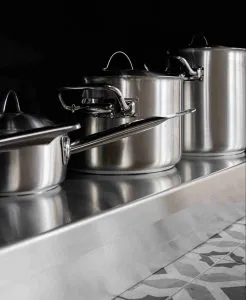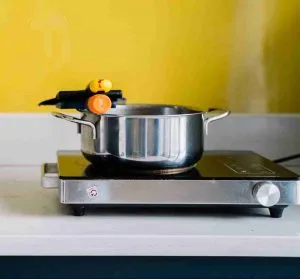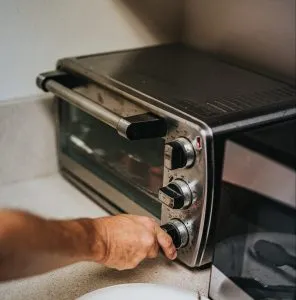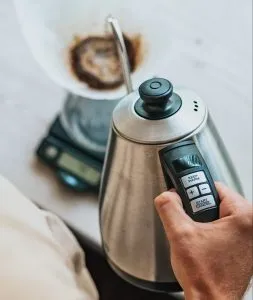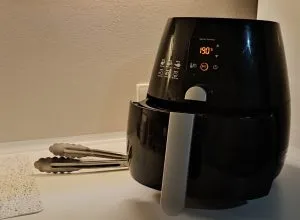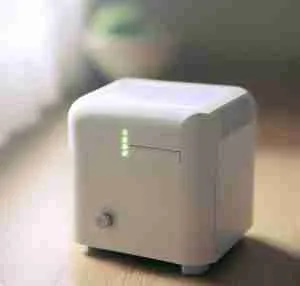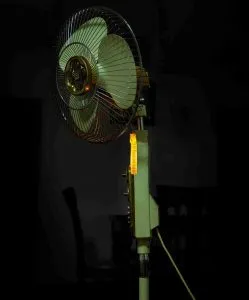Curious about how many BTUs a 1500 watt heater produces? Let’s find out!
Contents
ToggleKey Takeaways:
- A 1500-watt heater typically puts out around 5118 BTU of heat.
- This calculation can be done using a BTU calculator or by multiplying the wattage by 3.412.
- Factors such as outside temperature, insulation, and airflow can affect the number of BTUs needed for heating.
- Consider these factors when determining the appropriate wattage for a heater based on room size.
- Evaluate the claim made by some electric heater manufacturers that their products can heat large spaces in relation to outside temperature and room conditions.
Understanding BTUs and Watts
Before we can calculate the BTU rating of a heater, let’s understand the relationship between BTUs and watts. BTUs, or British Thermal Units, are a unit of measurement used to quantify the amount of heat energy produced. On the other hand, watts are a measurement of power. So, how do these two measurements relate to each other?
To convert BTUs to watts or vice versa, we use a conversion factor: 1 BTU is approximately equal to 3.412 watts. This means that for every watt of power consumed, approximately 3.412 BTUs of heat energy are produced. Understanding this conversion factor is essential when comparing different heating appliances, as it allows us to compare their heating capacities accurately.
For example, a 1500W heater typically puts out around 5118 BTU of heat. This calculation can be done by multiplying the wattage by the conversion factor of 3.412. It’s important to note that this is just an approximate value, as factors such as efficiency ratings can affect the actual BTU output of a heater.
In summary, the relationship between BTUs and watts is crucial when determining the heating capacity of a heater. By understanding this relationship and using the appropriate conversion factor, we can accurately calculate the BTU rating of a 1500W heater and compare it to other heating appliances to choose the right one for our needs.
Calculating BTUs from Watts

Now, let’s learn how to convert watts to BTUs and calculate the BTU rating of a 1500W heater. To understand this conversion, we need to know that a BTU (British Thermal Unit) is a unit of measurement for heat energy, while a watt is a unit of power. The relationship between the two units can be determined using a conversion factor.
The conversion factor for converting watts to BTUs is 3.412. This means that 1 watt is equivalent to 3.412 BTUs. To calculate the BTU rating of a 1500W heater, we can multiply the wattage by this conversion factor:
| Wattage | BTU Rating |
|---|---|
| 1500 watts | 1500 watts * 3.412 BTUs/watt = 5118 BTUs |
Therefore, a 1500W heater typically puts out around 5118 BTU of heat. This information is important when considering the heating capacity of the heater for a specific space.
It is worth noting that wattage can also be determined based on the BTU required to heat a given space. Factors such as outside temperature, insulation, and airflow can affect the number of BTUs needed for effective heating. When determining the appropriate wattage for a heater based on room size, it is essential to consider these factors. This will ensure that the heater provides adequate warmth for the desired space.
Factors Affecting BTU Requirements
The BTU requirements for heating a space depend on several factors. Let’s take a closer look at what influences these requirements.
Firstly, the outside temperature plays a significant role in determining the number of BTUs needed to heat a space. In colder climates, where the temperature drops significantly, a higher BTU output is required to maintain a comfortable indoor temperature. On the other hand, in milder climates, a lower BTU output may be sufficient. For more on maintaining optimal humidity and temperature in specific areas of your home, especially basements, see what should basement humidity be and plumbing considerations for a basement bathroom.
Secondly, the insulation of the space is another crucial factor to consider. Well-insulated areas retain heat better and require lower BTU outputs as less heat is lost to the surrounding environment. Conversely, poorly insulated spaces will need a higher BTU output to compensate for heat loss.
Lastly, airflow within the space can affect BTU requirements. If a room has poor air circulation or is drafty, it may require a higher BTU output to distribute heat evenly and compensate for heat loss due to airflow. Proper ventilation and airflow control can help optimize heating efficiency.
| Factors Affecting BTU Requirements | Impact on BTU Output |
|---|---|
| Outside Temperature | Higher temperature differential requires higher BTU. |
| Insulation | Well-insulated spaces require lower BTU. |
| Airflow | Poor air circulation may necessitate higher BTU. |
By considering these factors, you can ensure that your electric heater provides optimal heating for your specific space. If you’re unsure about the BTU requirements for your room, you can use a BTU calculator specifically designed for electric heaters. These calculators take into account various factors to provide an estimate of the BTU output needed to heat your space effectively.
Keep in mind that the claim made by some electric heater manufacturers that their products can heat large spaces should be evaluated in relation to your specific circumstances. Consider the outside temperature, insulation, airflow, and the square footage of the room when assessing these claims. It’s always better to choose a heater with a slightly higher BTU outcome than what is calculated to ensure optimal comfort.
Determining Wattage for Room Size
To ensure efficient heating, it’s important to choose the right wattage for your space. Let’s explore how to determine the appropriate wattage for your room size.
One way to calculate the wattage needed is by considering the amount of heat required to warm a given area. A general rule of thumb is that you need about 30-40 BTUs per square foot to effectively heat a room. So, if you have a 150 square foot room, you would need a heater with around 4,500-6,000 BTUs. To convert this BTU requirement to wattage, you can use a calculator or a simple formula. A 1500-watt heater typically puts out around 5118 BTUs of heat. This can be calculated by multiplying the wattage by 3.412, which gives you a rough estimate of the BTU outcome.
However, it’s important to note that factors other than room size can affect the BTU requirement. For example, if your space is poorly insulated or drafty, you may need a higher-wattage heater to compensate for heat loss. On the other hand, if your room is well-insulated and sealed, you may be able to use a lower-wattage heater. Additionally, the outside temperature plays a role in determining the wattage needed. If you live in a colder climate, you may need a higher wattage heater to combat the low temperatures.
Table: Recommended Wattage Based on Room Size
| Room Size (in square feet) | Recommended Wattage |
|---|---|
| 100-150 | 1500-2250 |
| 150-250 | 2250-3750 |
| 250-400 | 3750-6000 |
As you can see from the table above, the recommended wattage increases as the room size increases. However, it’s always a good idea to consider other factors such as insulation and outside temperature to ensure optimal heating. Keep in mind that these are general guidelines, and it’s best to consult a BTU calculator or a heating professional for a more accurate assessment of your specific needs.
Evaluating Heater Claims
It’s important to critically evaluate the claims made by electric heater manufacturers regarding their ability to heat large spaces. While these claims may sound impressive, it’s crucial to consider various factors that can affect the actual heating capacity of a heater. One such factor is the outside temperature. If you live in a region with extremely cold winters, a heater’s ability to effectively warm a large space may be compromised. It’s essential to choose a heater that can handle the heat loss caused by colder temperatures.
Insulation is another factor that can impact the performance of a heater. Poor insulation can result in heat escaping from the room, requiring a heater with a higher BTU rating to compensate for the heat loss. On the other hand, a well-insulated space may require a lower BTU rating. It’s advisable to assess the insulation in your room before selecting a heater, as this will help determine the appropriate wattage needed.
Airflow is yet another crucial consideration. If the room has significant drafts or poor air circulation, the heat produced by the heater may dissipate quickly, making it difficult to heat a larger space effectively. In such cases, a heater with a higher BTU rating might be necessary to overcome these airflow challenges.
| Factors Affecting BTU Requirements | Considerations |
|---|---|
| Outside Temperature | Colder climates may require higher BTU ratings to counter heat loss. |
| Insulation | Poor insulation may necessitate a higher BTU rating, while good insulation may allow for a lower rating. |
| Airflow | Poor air circulation or drafts can result in heat dissipation, requiring a higher BTU rating. |
When evaluating heater claims, it’s crucial to consider these factors alongside the manufacturer’s claimed ability to heat large spaces. Remember, a 1500-watt heater typically puts out around 5118 BTU of heat, which is enough to heat about 170 square feet. While this may be suitable for smaller rooms, larger areas may require additional heaters or higher wattage options to achieve optimal heating.
Conclusion
In conclusion, a 1500 watt heater typically produces around 5118 BTUs of heat, which is sufficient to heat approximately 170 square feet of space. This calculation can be done using a BTU calculator or by multiplying the wattage by 3.412. It’s important to consider factors such as outside temperature, insulation, and airflow when determining the appropriate wattage for a heater based on room size.
Factors such as outside temperature, insulation, and airflow can affect the number of BTUs needed for heating. These factors need to be taken into account when determining the appropriate wattage for a heater based on the size of the room. A BTU calculator can be useful in determining the BTU requirements for a given space.
FAQ
1: What is a watt?
A watt is a unit of power that measures the rate at which energy is consumed or produced.
2: What is a BTU?
A BTU (British Thermal Unit) is a unit of heat energy. It is the amount of heat required to raise the temperature of one pound of water by one degree Fahrenheit.
3: How many BTUs is a 1500 watt space heater?
A 1500 watt space heater produces approximately 5118 BTUs of heat.
4: What is the difference between a space heater and an electric heater?
A space heater and an electric heater essentially refer to the same thing. They are both devices that use electrical energy to generate heat.
5: How many BTUs are needed to heat a room?
The number of BTUs needed to heat a room depends on factors such as the size of the room, insulation, and desired temperature. You can use a BTU calculator to determine the appropriate BTU rating for your specific room size.
6: How many square feet can a 1500 watt heater heat?
The heating capacity of a 1500 watt heater can vary, but on average, it can effectively heat a room of around 150-200 square feet.
7: How do I calculate BTUs per square foot?
To calculate BTUs per square foot, divide the total BTU output of the heater by the square footage of the room. This will give you the BTU per square foot value.
8: How do I calculate how many BTUs I need to heat a room?
To calculate how many BTUs you need to heat a room, consider factors such as the room size, insulation, climate, and desired temperature. You can use a BTU calculator or consult with a professional to get a more accurate estimation.
9: How many BTUs does a 1500-watt heater produce?
A 1500-watt heater typically produces around 5118 BTUs of heat.
10: How many watts is a BTU?
There is no direct conversion between watts and BTUs as they measure different quantities. However, a BTU is roughly equivalent to 0.293 watts.























